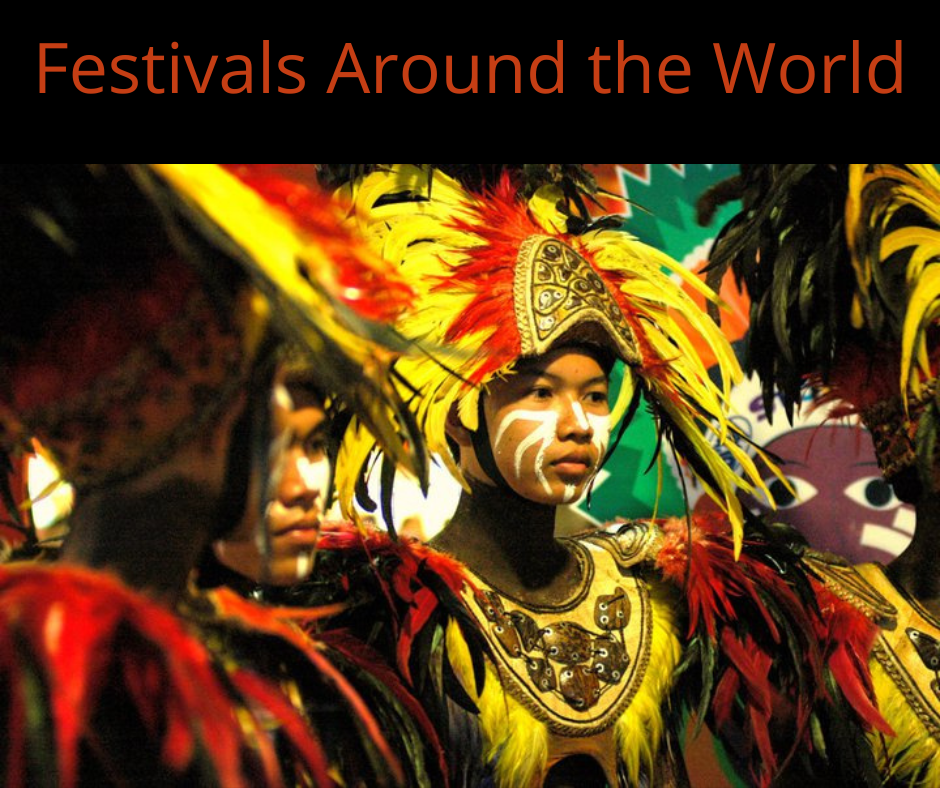
In this podcast, you’ll learn about some famous festivals that are celebrated around the world and some vocabulary that is associated with them.
Voice message from Carmen from Huelva
Do you foresee the adoption of Thanksgiving in the future?
To my mind,…
Have a feast
I strongly believe…
Take advantage of this celebration
Voice message from David from Valencia
Why don’t we talk about Las Fallas?
The Fallas Festival, Valencia, Spain
Held from March 15 to 19. It combines art, tradition, and fire in honor of Saint Joseph, the patron saint of carpenters, and father of Jesus Christ.
The festival’s highlight is the creation of large, intricate sculptures called fallas, made of wood, papier-mâché, and other materials, often depicting satirical or cultural themes.
These are displayed throughout the city before being set on fire in spectacular bonfires during La Cremà on the final night.
The festival also features parades, fireworks, traditional music, and colorful costumes and marching bands, (and many, many suddenly blocked roads causing considerable “organised chaos”!)
Carnival in Rio de Janeiro, Brazil
The world’s biggest festival. A five-day celebration filled with vibrant parades, samba music, and dazzling costumes. Features competitions between samba schools, street parties (blocos), and a festive atmosphere that showcases Brazil’s rich culture and love of dance.
Diwali, India
Known as the Festival of Lights, Diwali is celebrated across India and among Indian communities worldwide. It marks the triumph of light over darkness and good over evil. Families light oil lamps (diyas), set off fireworks, exchange gifts, and enjoy festive meals during this five-day celebration.
Oktoberfest, Germany
Held annually in Munich, Oktoberfest is the world’s largest beer festival. It spans 16–18 days, starting in September and ending on the first Sunday in October, featuring traditional Bavarian beer, hearty food, music, and folk costumes. Visitors gather in massive tents to enjoy lively entertainment and a celebratory atmosphere.
Chinese New Year, China
Celebrated across China and globally, Chinese New Year marks the lunar calendar’s start. Festivities include family reunions, dragon and lion dances, lantern displays, and fireworks. Each year is associated with one of the 12 zodiac animals, adding cultural significance to the celebration. In 2025, it’ll be celebrated on January 29th. The year of the snake.
Mardi Gras, New Orleans, USA
New Orleans’ Mardi Gras (Shrove Tuesday) is a lively celebration leading up to Lent, featuring grand parades, ornate floats, and masked balls. Known for its festive energy, revelers wear costumes, collect beads, and enjoy jazz music and Creole cuisine. Mardi Gras means Fat Tuesday, as it’s the last day one can enjoy rich foods and fun times before Ash Wednesday, the following day,, when Lent begins.
Songkran, Thailand
Songkran is Thailand’s New Year festival, celebrated from April 13 to 15. Known for its nationwide water fights, people splash water on each other to symbolize purification and good fortune. Traditional activities like temple visits and family gatherings also play a key role.
Day of the Dead (Día de los Muertos), Mexico
This vibrant Mexican tradition, celebrated on November 1–2, honors deceased loved ones. Families create altars (ofrendas) with photos, marigolds, and offerings, while parades, skull-themed decorations, and lively gatherings bring a festive yet reflective atmosphere.
San Fermín, Pamplona, Spain
Also known as “The Running of the Bulls”, it centres around trying to run along with a group of bulls let out every day from 6 to 14 July to complete a fenced off route from La Cuesta de Santo Domingo to the bullring. Needless to say, this is extremely dangerous and often results in severe injuries and occasionally death, despite prayers to Saint Fermin for protection. Copious amounts of wine and partying accompany the main event.
…and now it’s your turn to practise your English.
Send us a voice message. https://www.speakpipe.com/inglespodcast
Send us an email with a comment or question to [email protected] or [email protected]
If you’re a Spanish speaker and you want to improve your English with free and paid resources, visit the mansioningles website at mansioningles.com and for paid products you can browse the online store at https://store.mansioningles.net/
Thank you to our Patreon supporters. Join our Patreon program and you get instant access to the transcriptions of this podcast and live Zoom chats so that you can practice speaking. https://www.patreon.com/inglespodcast
Welcome to our new Patreon supporters who have joined us this month:
David Santana Rubiales
Ezequiel
Fátima
Angeles
Genesis Cañizares
In next week’s episode: European Monarchies
If you enjoyed this podcast, please tell your friends.
The music in this podcast is by Pitx. The track is called ‘See You Later’




